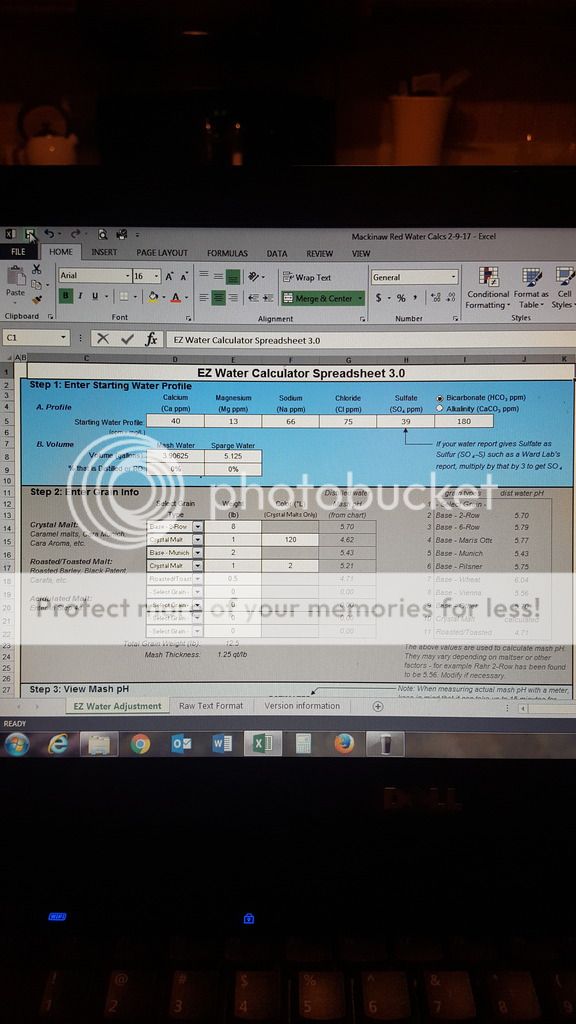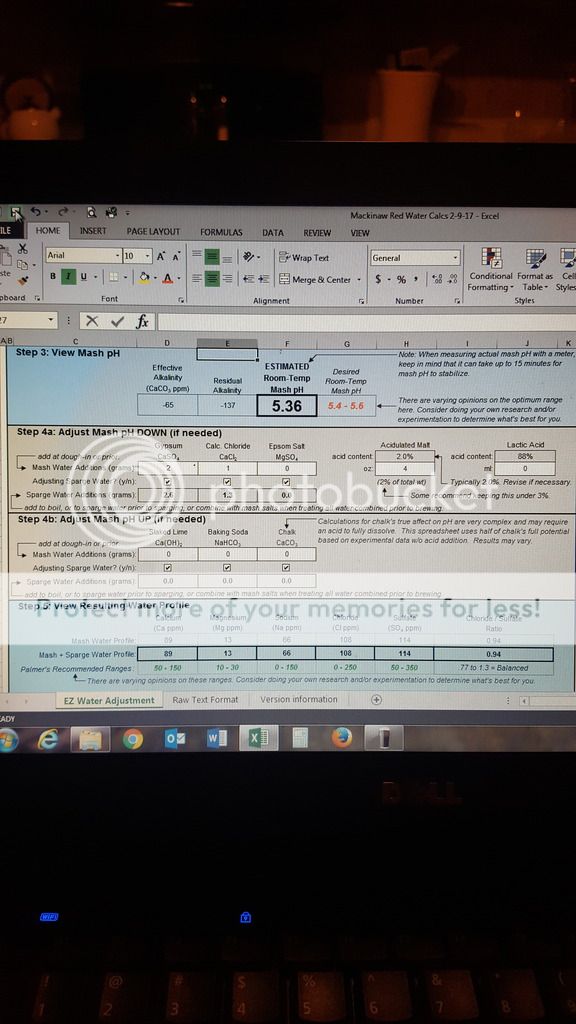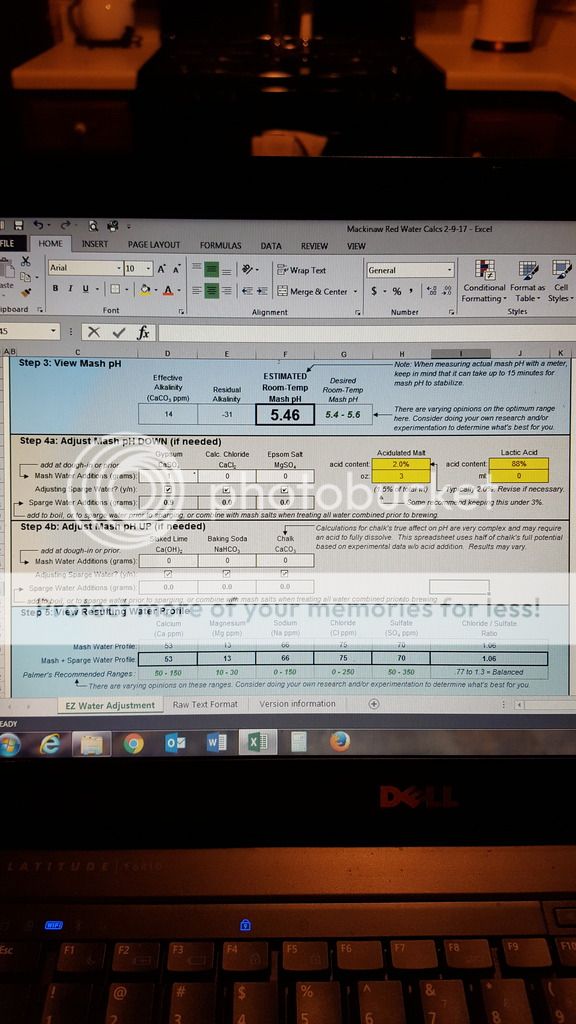I just received my Ward Labs report and would like a little feedback.
I brew in my garage and get my water from a sink out there. We have a whole house water filter and I am not positive the garage water goes through the filter system depending on how it's piped. I may send a sample from my kitchen to see those results and confirm the effectiveness of the filter. I'm moving to all grain and before my next batch, so I wanted to see how my water would fair for the task.
Anyway, here are the garage resultsale
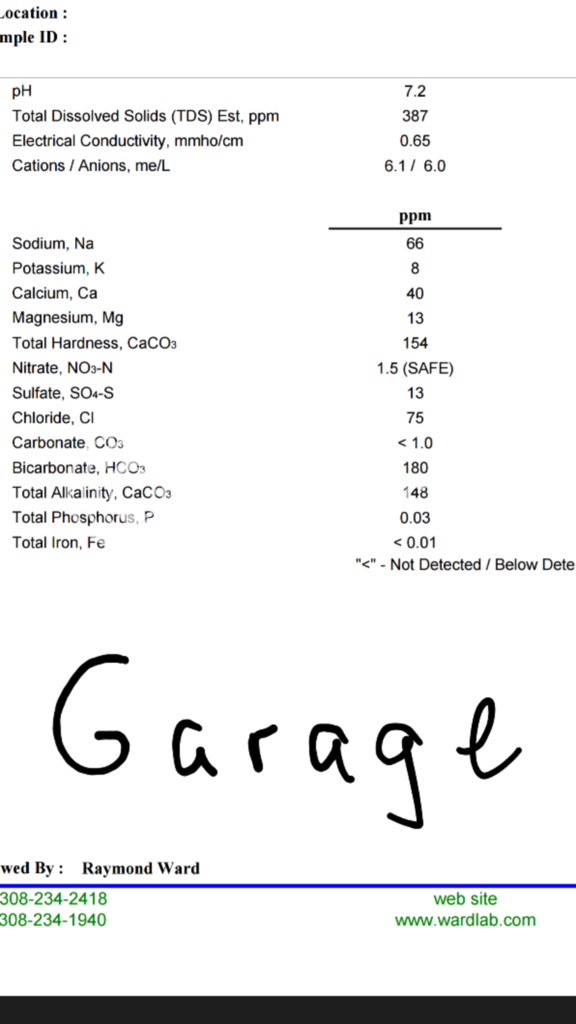
So I put these numbers into BnW, along with a recipe for an American Amber Ale I'd like to brew in the near future. I added some a small amount of gypsum, calcium chloride, and acid malt based around the Water Primer thread I've been reading and here are the results from that.
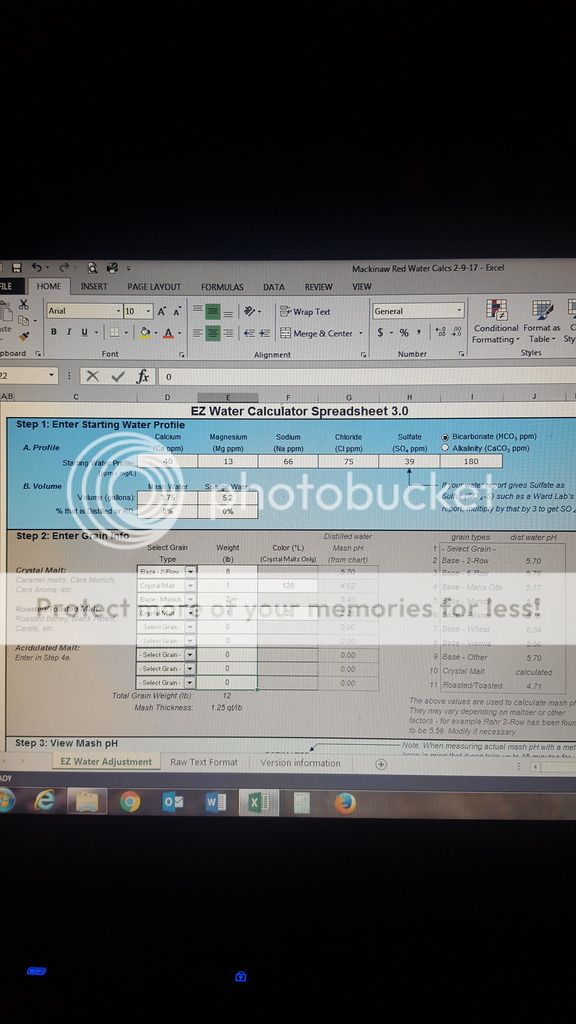
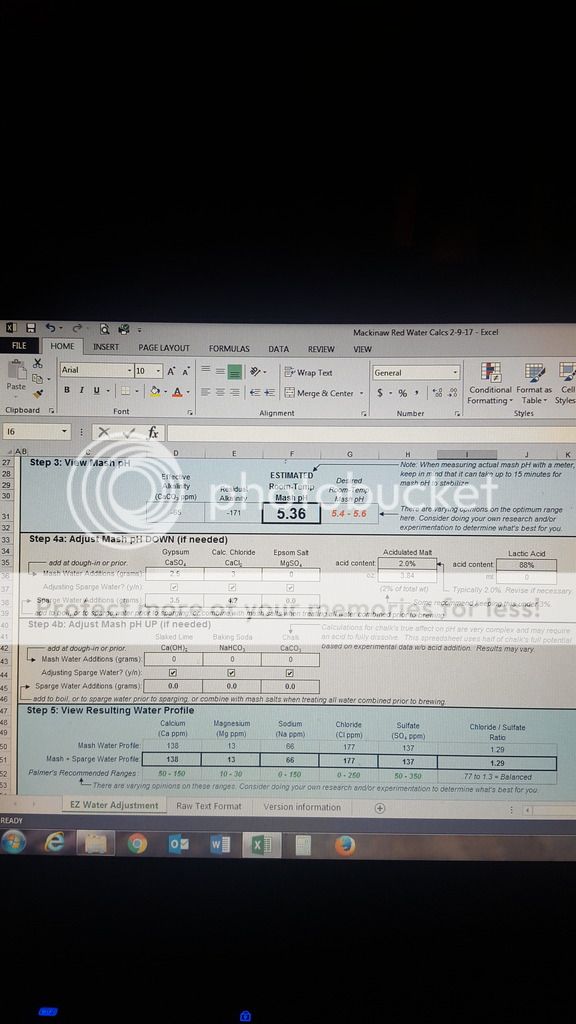
My concern is, even though the numbers appear "acceptable" in the spreadsheet, my water is still very hard. Is this correct? How would this effect my beer if made with the above adjustments?
I brew in my garage and get my water from a sink out there. We have a whole house water filter and I am not positive the garage water goes through the filter system depending on how it's piped. I may send a sample from my kitchen to see those results and confirm the effectiveness of the filter. I'm moving to all grain and before my next batch, so I wanted to see how my water would fair for the task.
Anyway, here are the garage resultsale

So I put these numbers into BnW, along with a recipe for an American Amber Ale I'd like to brew in the near future. I added some a small amount of gypsum, calcium chloride, and acid malt based around the Water Primer thread I've been reading and here are the results from that.


My concern is, even though the numbers appear "acceptable" in the spreadsheet, my water is still very hard. Is this correct? How would this effect my beer if made with the above adjustments?


